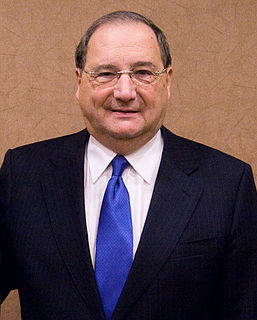A Quote by Walter Darby Bannard
Postmodernism lives in the academy, where words abandon reality to serve ambition, and reputations rise on hot air.
Related Quotes
There's something nearly mystical about certain words and phrases that float through our lives. It's computer mysticism. Words that are computer generated to be used on products that might be sold anywhere from Japan to Denmark - words devised to be pronounceable in a hundred languages. And when you detach one of these words from the product it was designed to serve, the words acquires a chantlike quality.
Words are delicate instruments: How to use them so that, after having read the poem, the taste remaining is not of the words themselves, but of a thought, a situation, a parallel reality? If not used appropriately, words in poetry are like the ugly remains of food after eating. What I mean is that readers will reject words if they don't serve to shift attention from themselves to somewhere else.
Gossip and slander are not victimless crimes. Words do not just dissipate into midair. . . . Words can injure and damage, maim and destroy - forcefully, painfully, lastingly. . . . Plans have been disrupted, deals have been lost, companies have fallen, because of idle gossip or malicious slander. Reputations have been sullied, careers have been ruined, lives have been devastated, because of cruel lies or vicious rumors. . . . Your words have such power to do good or evil that they must be chosen carefully, wisely, and well.
We can roam the bloated stacks of the Library of Alexandria, where all imagination and knowledge are assembled; we can recognize in its destruction the warning that all we gather will be lost, but also that much of it can be collected again; we can learn from its splendid ambition that what was one man's experience can become, through the alchemy of words, the experience of all, and how that experience, distilled once again into words, can serve each singular reader for some secret, singular purpose.
There's often a distressing disconnect between the good words we speak and the way we live our lives. In personal relations and politics, the mass media, the academy and organized religion, our good words tend to float away even as they leave our lips, ascending to an altitude where they neither reflect nor connect with the human condition. We long for words like love, truth, and justice to become flesh and dwell among us. But in our violent world, it's risky business to wrap our frail flesh around words like those, and we don't like the odds.
Can we who have had the joy of knowing that we are not orphans, that we have a Father, be indifferent to this city which asks of us, perhaps even unwittingly, without being aware of it, a hope that will help it look to the future with greater confidence and serenity? We cannot remain indifferent. . . . Words without witness are hot air. Words do not suffice. It must be the true witness that Paul speaks of.









































